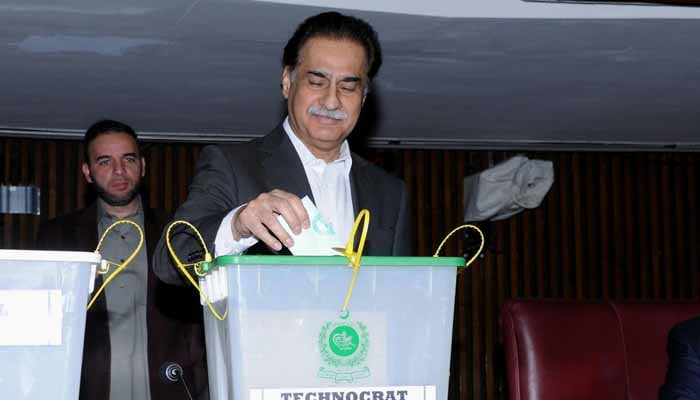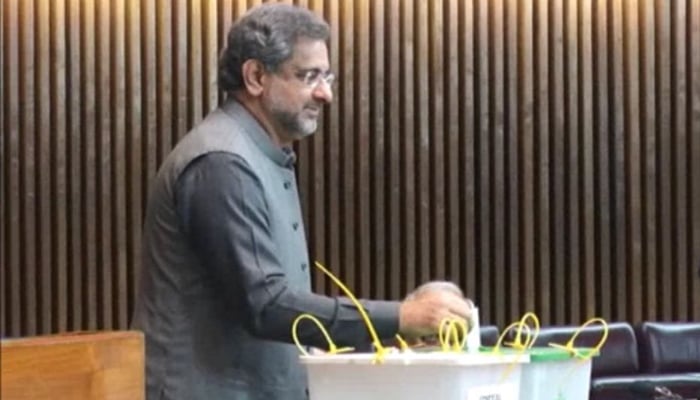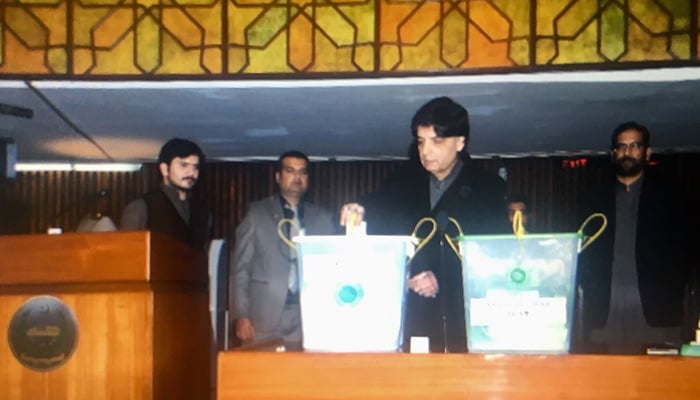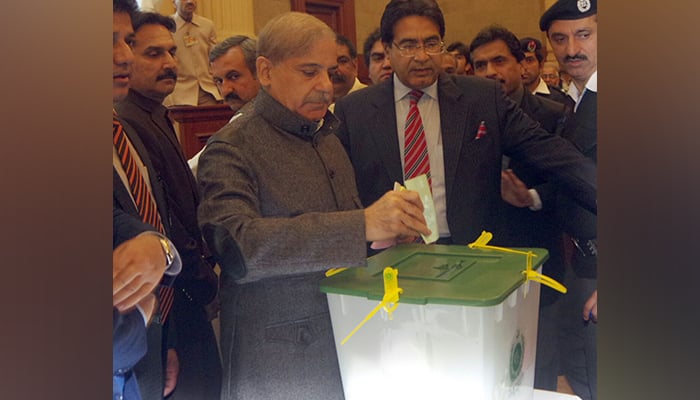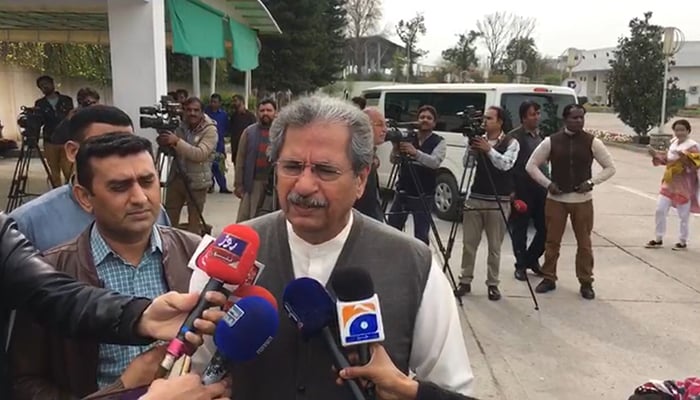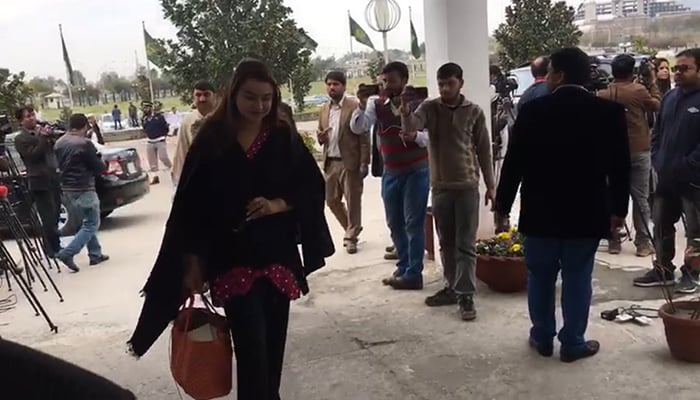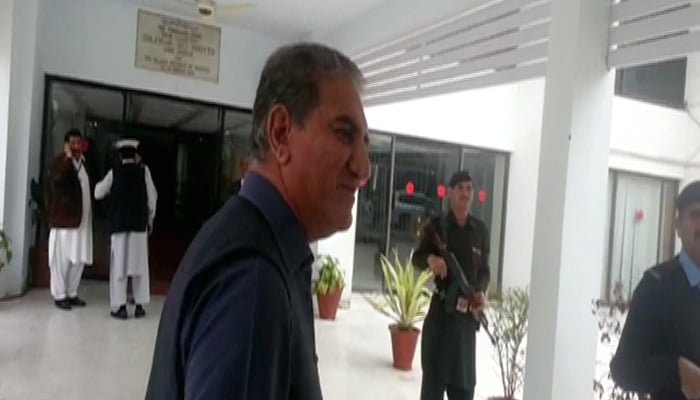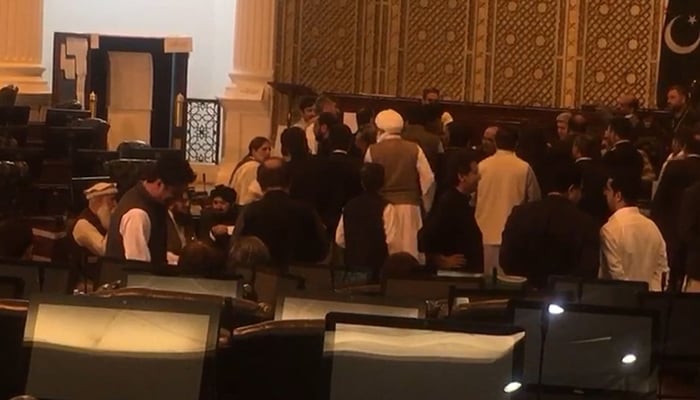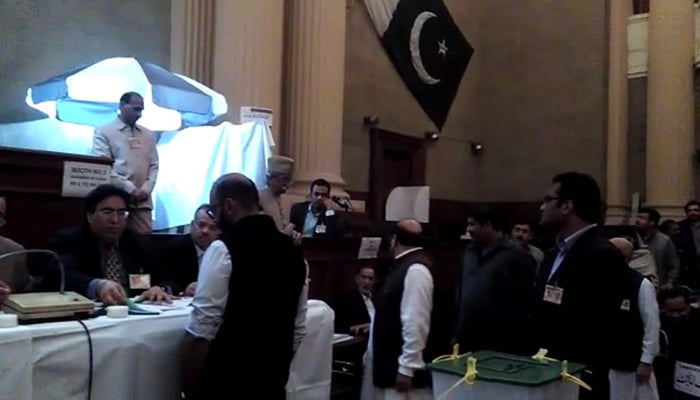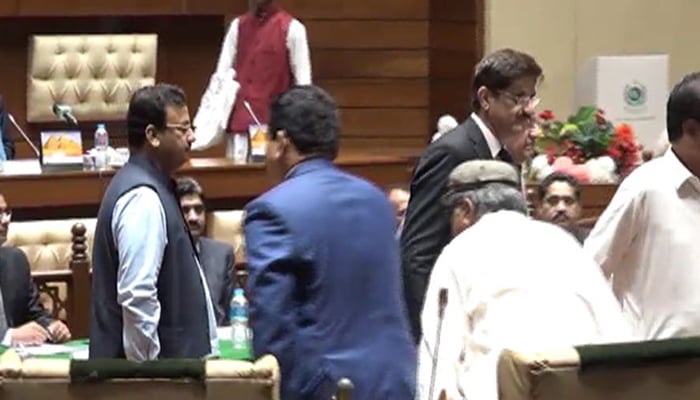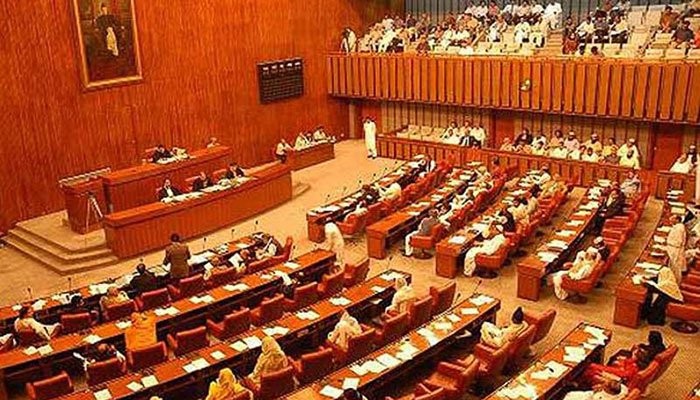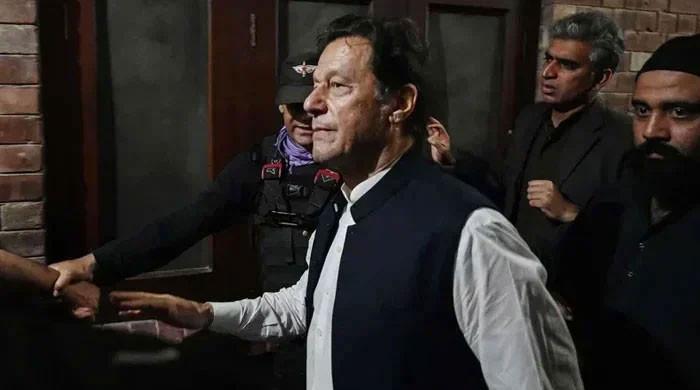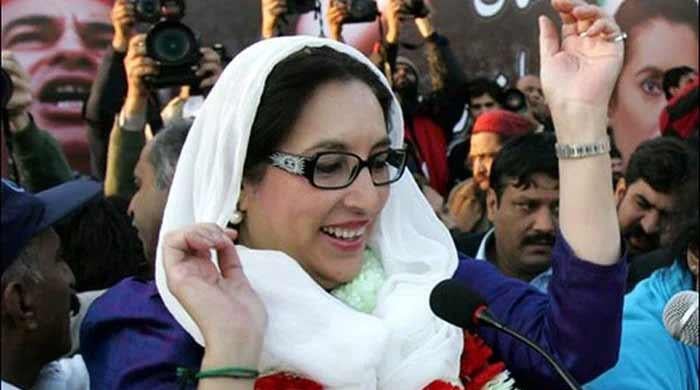Senate polls: PML-N emerges as largest party as PTI gains six seats
Polling for Senate elections was held from 9am to 4pm in the four provincial assemblies, National Assembly today
March 03, 2018
As the Senate elections concluded at 4pm on Saturday and unofficial results started trickling in, the ruling Pakistan Muslim League-Nawaz (PML-N) enjoyed a clear lead in the number of seats bagged.
The Pakistan Peoples Party (PPP), which had till Saturday enjoyed a majority in the Upper House, lost its majority but still followed close behind in the number of seats won.
The other opposition party, Pakistan Tehreek-e-Insaaf (PTI), managed to better its standing in the Senate after the polls.
PML-N
Pakistan Muslim League-Nawaz (PML-N) backed independent candidates bagged 15 Senate seats across the country according to unofficial and unverified results.
PML-N backed independent candidates secured 11 of 12 seats in the Punjab Assembly and also bagged another two seats in Khyber Pakhtunkhwa (KP).
In the federal capital, PML-N backed Mushahid Hussain Syed bagged the technocrat seat and Asad Junejo won the general seat. The ruling party also managed to secure two seats from KP.
PPP
The opposition Pakistan Peoples Party (PPP), which was in control of Senate, managed to bag 10 seats from Sindh and two from KP. Outgoing Senate chairman Mian Raza Rabbani, Moula Bux Chandio, Imamuddin Shouqeen, Mustafa Nawaz Khokhar and Syed Mohammad Ali Shah Jamot won from general seats.
The party lost two general seats to candidates belonging to other parties.
Following the elections, the PML-N replaced PPP as the largest party after Saturday's polls. The ruling party now has 33 senators in the Upper House, an increase of six seats. While the PPP now has 21 seats, down six seats.
PTI
Pakistan Tehreek-e-Insaaf (PTI) bagged five seats from KP. The party won three general seats and one each in the woman and technocrat category. In addition, Chaudhry Sarwar won a seat in the general category from Punjab.
MQM-P, others
Muttahida Qaumi Movement Pakistan (MQM-P), beset by factional infighting in the run-up to the Senate polls, only managed to secure a single seat from Sindh. The seat was won by Mohammad Farogh Naseem.
Among the smaller parties, PML-F secured a seat from Sindh. The JUI-F bagged a seat each from Balochistan and KP while the National Party won two seats from Balochistan. Jamaat-e-Islami also bagged a single seat from KP.
From FATA, independent candidates Hidayatullah, Hilalur Rehman, Shamim Afridi and Mirza Afridi have been elected as senators, according to unofficial results.
Lawmakers began voting at 9am across the four provincial assemblies and the National Assembly.
Candidates contested for 52 seats from the provinces, Federally Administered Tribal Areas (FATA) and the federal capital.
Following the Supreme Court’s ruling in the Elections Act 2017 case, Pakistan Muslim League-Nawaz (PML-N) candidates contested the election as independents.
Rangers and Frontier Constabulary personnel were deployed outside the provincial assemblies and Parliament to provide security.
To elect the senators from FATA, eight of 11 FATA MNAs cast their votes — with state minister Ghalib Khan Wazir, PML-N's Shahabuddin and PTI's Qaiser Jamal abstaining.
In NA, more than 290 MNAs cast their votes, with Imran Khan, Sheikh Rasheed, Chaudhry Pervaiz Elahi and Farooq Sattar choosing to stay away from the process.
In the Balochistan Assembly, all the 64 MPAs cast their votes, whereas, in Sindh, 161 MPAs cast their votes.
In the Senate elections, the four provincial assemblies vote for their representatives, whereas the FATA senators are elected by the MNAs from the tribal areas and the Islamabad senators by the National Assembly members.
A total of 20 candidates were contesting 12 seats from Punjab, 33 on 12 seats from Sindh, 26 on 11 seats from Khyber Pakhtunkhwa, 25 on 11 seats from Balochistan, 24 on four seats from FATA and five on two seats from Islamabad.
In Balochistan, ECP Member Abdul Ghaffar Soomro was monitoring the election process, whereas ECP Member Justice (retd) Shakeel Ahmed Baloch was doing the same in Sindh and ECP Member Justice (retd) Altaf Ibrahim Qureshi in Punjab. ECP Secretary Babar Yaqub was monitoring the process in the Khyber Pakhtunkhwa Assembly.
In the National Assembly, Speaker Ayaz Sadiq was the first in line to cast the vote for the senators from Islamabad.
Sources claimed that MQM-Pakistan’s six MPAs in the Sindh Assembly defied party orders and voted for the Pakistan Peoples Party.
Sources revealed that the dissident MPAs include four women lawmakers, one religious minority member and one from interior Sindh.
'Nawaz will come out as the winner today'
Addressing the media before entering Parliament in the morning, State Minister for Information Marriyum Aurangzeb said a sea of people welcomes former prime minister Nawaz Sharif wherever he goes as he has served the public.
"Never in any country’s history has an elected premier been removed on the basis of an Iqama [foreign work permit]. Despite no proof of corruption, he was still removed," she said, adding that, "Nawaz will come out as the winner in today’s elections".
In response to a question regarding recent defections from the PML-N, the minister said history is a witness that those who have left Nawaz still suffer the consequences.
‘Not playing cricket’
PML-N leader Chaudhry Nisar Ali Khan spoke with journalists after casting his vote. Nisar said he was not playing cricket, thus there was no need for him to be on the front or back foot in the party.
Nisar has become a disgruntled party member following disagreements with the PML-N policies after Nawaz Sharif’s disqualification as prime minister last year.
When asked about his absence in the recent PML-N Parliamentary Party meeting, Nisar said he would skip these meetings during the tenure of Nawaz as well.
'Imran Khan will not vote in Senate elections'
Talking to the media outside the National Assembly, Pakistan Tehreek-e-Insaf (PTI) MNA Shafqat Mahmood said party chairman Imran Khan will not be coming to the assembly today.
When asked for reasons, the PTI MNA said Imran has other commitments.
Code of conduct
The Election Commission of Pakistan issued a code of conduct on Friday, according to which no one would be allowed to carry mobile phones in the polling stations while the assembly members would only be allowed inside if they will be carrying their secretariat cards.
Moreover, the code of conduct also asks the MNAs and MPAs to ensure the secrecy of their votes.
According to ECP, the returning officer would be given the authority of a level one magistrate under which he or she would be able to announce a punishment immediately after carrying out a summary trial against the violators.
The returning officer would also have the authority to cancel a ballot paper and immediately announce a punishment if it is being handed to an unauthorised person.
The punishment for violating the code of conduct includes a fine of up to Rs100,000 and/or a jail term between six months and two years.
How the election works
Senate elections are held in the National and provincial assemblies through secret voting. Each lawmaker is given four slips of paper (general, reserved women, technocrats/ulema and minority) to cast their votes.
